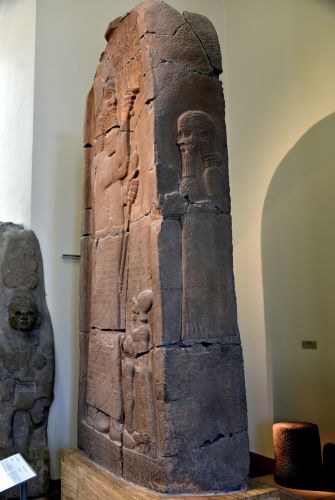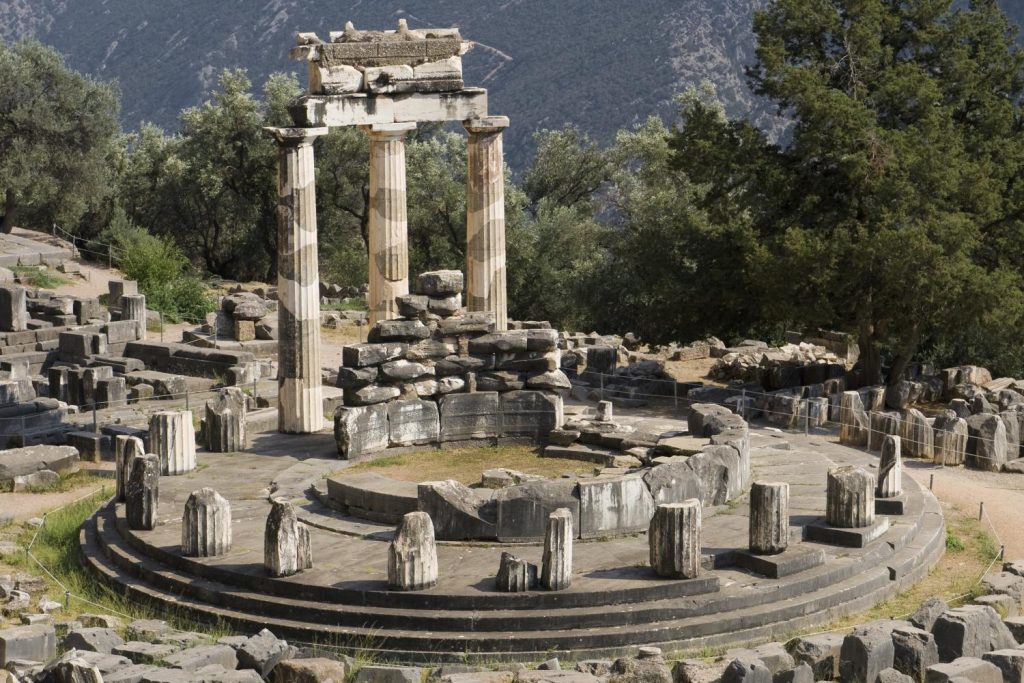

Loyalty in the ancient world was never a private sentiment. It was tested, displayed, and scrutinized in rituals of speech, silence, feasting, sacrifice, and terror.

By Matthew A. McIntosh
Public Historian
Brewminate
Introduction: The Anxiety of Power
Every ruler in the ancient world confronted the same paradox: sovereignty required loyalty, but loyalty could never be taken for granted. Monarchs, emperors, and generals alike faced a world where betrayal lurked in families, courts, and armies. They responded not by trust alone but by devising elaborate rituals and practical measures to test and secure fidelity.
Loyalty was not abstract. It was embodied in oaths sworn before gods, in hostages surrendered, in feasts attended, in cheers shouted on command, and in the silences that spoke volumes. To understand how rulers tested loyalty is to understand how power itself functioned: precarious, performative, and constantly under threat.
Oaths and the Sacred Language of Allegiance

In many ancient societies, loyalty was first and foremost a sacred obligation. Mesopotamian kings relied on ritual oaths sworn before gods. The Vassal Treaties of Esarhaddon (7th century BCE) bound nobles to support the king’s heir under penalty of divine wrath.1 The oaths were lengthy and terrifying, filled with curses invoking famine, disease, and military defeat should the swearer falter. Here loyalty was tested not by earthly punishment but by fear of supernatural vengeance.
The Romans refined the oath into a military institution. Soldiers swore the sacramentum, pledging fidelity to the general and, later, to the emperor himself. This was not symbolic: the annual renewal of the oath was a visible test of allegiance. A soldier who refused or hesitated revealed himself as suspect, an enemy within the ranks.2 The oath made loyalty both personal and religious, for perjury offended the gods as well as the state.
Greek city-states similarly required oaths to confirm allegiance. In Athens, citizens swore loyalty to the constitution at key political transitions. Ritual oaths before shrines of Zeus or Athena carried the same dual weight as in Mesopotamia and Rome: the gods served as guarantors of civic fidelity.
Hostages and the Politics of Collateral

Perhaps the most brutal but effective test of loyalty lay in the surrender of hostages. Assyrian kings required conquered peoples to send their children to the royal court, a constant reminder that rebellion would mean the death of one’s heirs. Loyalty was thus tested by the most primal bond of all: the willingness to entrust blood to the hands of the king.
The Persians continued this practice, transforming hostages into instruments of acculturation. Young nobles from subjugated lands were raised in the Persian court, educated in language, manners, and imperial ideology. Their very survival depended on their families’ fidelity, while their minds were shaped to identify with the empire. Hostages served as both collateral and converts.
Rome institutionalized the practice. Conquered peoples sent sons to the capital, where they were paraded, educated, and occasionally paraded again as living guarantees of loyalty. The historian Josephus himself had once been a hostage of Rome, a symbol of submission even as he became an interpreter of Roman power.3
Feasts, Gifts, and Reciprocity as Loyalty Tests
Not all tests relied on coercion. In many societies, loyalty was gauged through feasts and gift-giving. The Persian court turned banquets into performances of fidelity. To eat the king’s food was to acknowledge his supremacy; to refuse was to defy. Such rituals of reciprocity transformed daily sustenance into political theatre.
Among Celtic and Germanic tribes, as described by Roman authors, feasting functioned as a constant loyalty test. Leaders distributed meat and plunder at gatherings, and followers were expected to accept them with gratitude. Refusal or hesitation marked disloyalty. Loyalty, in these cultures, was not abstract allegiance to the state but concrete participation in the cycle of generosity and obligation.
Military Demonstrations and the Acclamation of Power

Armies provided rulers with their most dangerous subjects and their most vital allies. To test their loyalty, rulers turned to spectacle. Roman generals distributed donative, cash gifts, and then awaited acclamation. The cheers of the army, shouted in unison, confirmed fidelity. A tepid response, silence, or worst of all, acclaim for another general revealed disloyalty and threatened mutiny. Loyalty was tested not once but repeatedly, in each ceremony where soldiers affirmed or withheld their voices.
Chinese dynasties staged mass assemblies where officials and subjects were commanded to bow and chant ritual phrases of devotion. Like their Roman counterparts, emperors scrutinized enthusiasm. The failure to cheer loudly enough, to prostrate correctly, or to appear in proper form could be noted as evidence of disloyalty. Silence could be fatal.
Trials of Speech and Silence
Loyalty was often tested through words, demanded in public declarations. Augustus required senators to swear allegiance after his victory at Actium, watching carefully for hesitation. In some courts, silence itself was a verdict. Those who failed to applaud imperial speeches, to cheer in ceremonies, or to affirm the ruler’s authority revealed themselves as enemies. The absence of sound was more dangerous than outright defiance, for it suggested concealed disloyalty waiting to erupt.
Fear as Theater: The Ruler’s Staged Tests
Ancient rulers understood that fear itself could test loyalty. Assyrian kings staged public punishments of rebels, mutilating captives before their courtiers. The horror was not random: it was a loyalty test, an opportunity to see who flinched, who turned away, and who smiled approvingly.
In China, emperors circulated rumors of conspiracies or issued “trap edicts,” proclamations designed to test whether officials would reveal true opinions or betray hesitation. Though draped in bureaucratic language, these were loyalty tests cloaked in law. Even later, in medieval Russia, Ivan the Terrible’s staged purges had similar purposes: loyalty measured by one’s reaction to orchestrated terror.
Religious Devotion as Political Fidelity

Hellenistic kings and Roman emperors fused loyalty with religion by demanding cultic devotion. Citizens were expected to sacrifice to the genius of the emperor. Christians’ refusal to participate was seen not merely as theological dissent but as treason, proof of disloyalty to Rome. Here loyalty was tested through worship, transforming civic fidelity into sacred obligation.
The merging of political allegiance with divine devotion proved one of the most powerful mechanisms of control in the ancient world. It made loyalty measurable in ritual acts that could not easily be concealed.
Conclusion: Loyalty as Performance
Loyalty in the ancient world was never a private sentiment. It was tested, displayed, and scrutinized in rituals of speech, silence, feasting, sacrifice, and terror. Oaths bound men to gods as well as rulers. Hostages embodied fidelity in their very bodies. Armies affirmed allegiance with cheers and acclamations. Courts staged loyalty tests through ceremonies of fear.
These practices reveal the precariousness of power. Rulers could never know who truly believed, who genuinely loved, or who secretly plotted. But they could stage loyalty, making it visible in words and acts. The irony is that the louder the cheers, the more fragile the trust. Ancient rulers knew this, and so they demanded tests again and again, rehearsing loyalty until it became the very fabric of rule.
Appendix
Footnotes
- Donald J. Wiseman, The Vassal Treaties of Esarhaddon (London: British School of Archaeology in Iraq, 1958), 32–40.
- J. E. Lendon, Empire of Honour: The Art of Government in the Roman World (Oxford: Oxford University Press, 1997), 95–101.
- Josephus, The Jewish War, trans. G. A. Williamson (London: Penguin, 1981), xxv–xxvii.
Bibliography
- Josephus. The Jewish War. Translated by G. A. Williamson. London: Penguin, 1981.
- Lendon, J. E. Empire of Honour: The Art of Government in the Roman World. Oxford: Oxford University Press, 1997.
- Wiseman, Donald J. The Vassal Treaties of Esarhaddon. London: British School of Archaeology in Iraq, 1955.
Originally published by Brewminate, 09.04.2025, under the terms of a Creative Commons Attribution-NonCommercial-NoDerivatives 4.0 International license.


